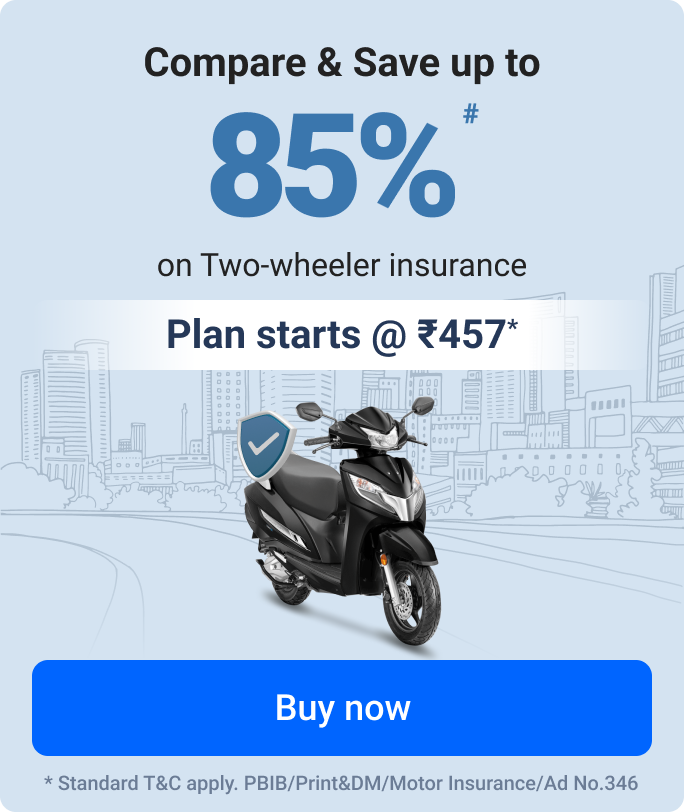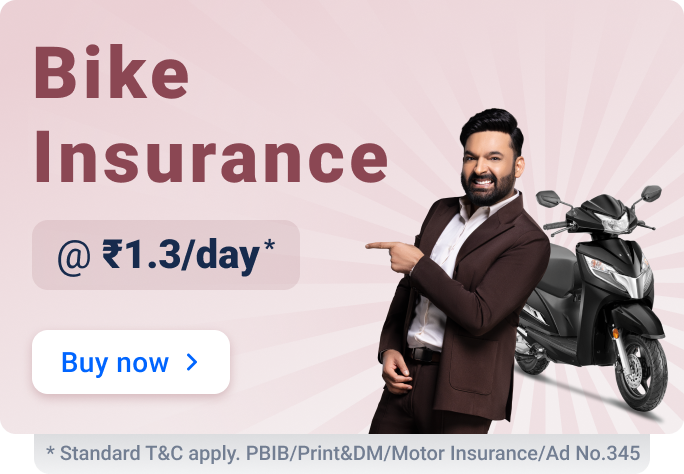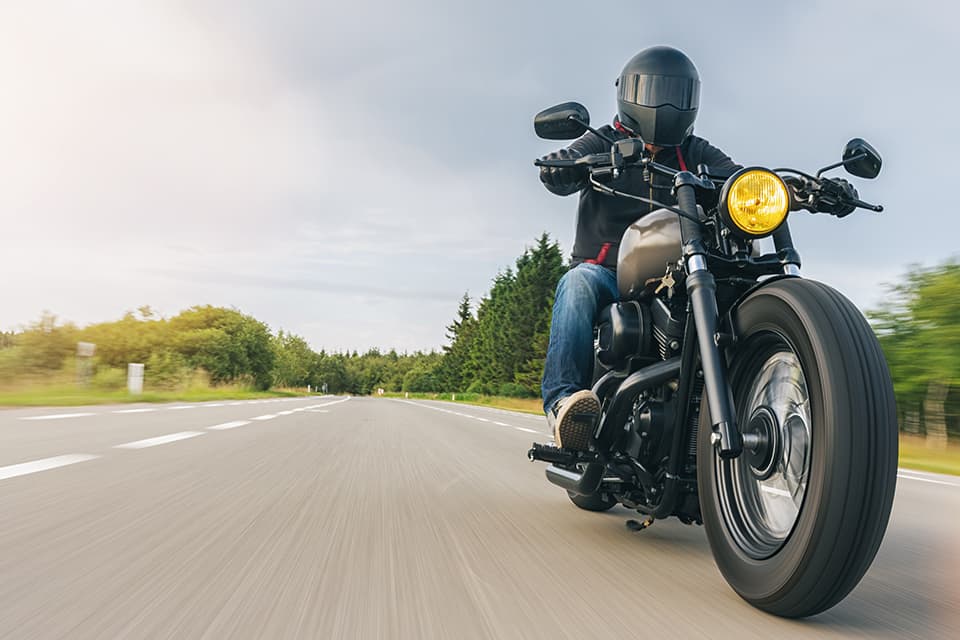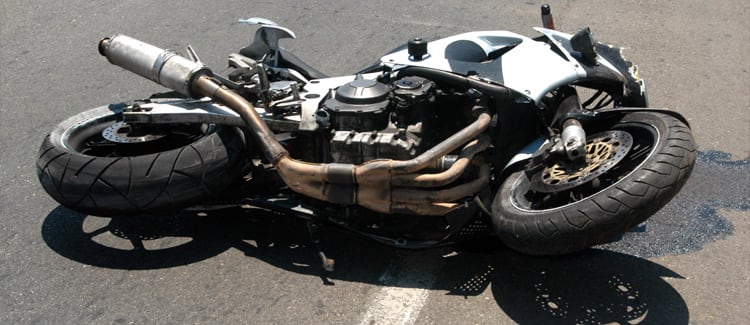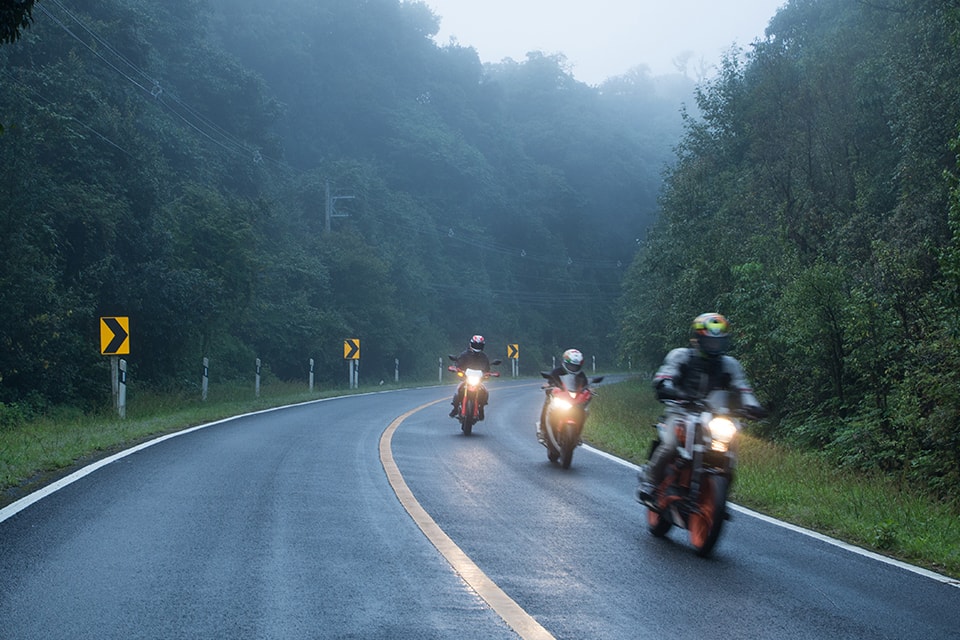7 Essential Tips to Take After a Motorcycle Accident in India
India's roads are full of rapid activities, but with that comes the risk of accidents. In 2024 alone, over 3.8 million accidents occurred, many involving two-wheelers. A bike accident can be a daunting experience, leaving you shaken and unsure of what to do. While having a comprehensive bike insurance policy provides a financial safety net, knowing the right steps to take immediately after an accident is crucial. This page will suggest 7 essential actions to take if you ever meet with a bike accident in India.
-
Save up to 85%# by comparing plans
-
17+ Insurers to choose from
-
1.2 Crore+ Bike Insured

Plans starting ₹1.3/day*
7 Tips to Remember in Case of a Bike Accident
The alarming increase in death and disability due to bike accidents is a matter of great concern in India. Recent data reveals a worrying trend. In 2023, road accidents claimed the lives of approximately 172,890 people across the country, with almost half of the victims being two-wheeler riders. This translates to a devastating average of 20 lives lost every hour. Despite increased awareness and safety campaigns, these numbers highlight the urgent need for greater caution and adherence to road safety rules.
Although, poor roads and rash driving are some of the main reasons behind the rising number of deaths. But being extra cautious can help you get out of this stressful situation. Below we have enlisted valuable tips to prepare you if you ever get involved in a bike accident.
-
Prioritize Prevention
- Gear Up: Always wear a good quality helmet that fits snugly and meets safety standards. It is your best protection against head injuries in an accident. Also, consider wearing other protective gear like gloves, jackets with armor, and riding boots for added safety.
- Choose a Suitable Bike: Select a bike that you can comfortably control and maneuver. Don't let the allure of a powerful or stylish bike compromise your safety. A bike that is too heavy or powerful for your skill level can increase the risk of accidents.
- Check the Weather: Before you head out, check the weather forecast. Rainy or foggy conditions can significantly reduce visibility and make roads slippery, increasing the chances of accidents. If the weather looks risky, postpone your ride.
- Carry Essential Documents: Always carry your driver's license, bike registration certificate, active bike insurance, and Pollution Under Control (PUC) certificate. These documents are essential for legal compliance and can help you avoid penalties if you are stopped by the traffic police authority.
-
Ensure Everyone's Safety
- Assess the Situation: The first priority after an accident is to check for injuries. Assess yourself for any pain or discomfort, and then check on others involved, including any passengers or people in other vehicles. If anyone is hurt or unconscious, call for medical help immediately.
- Move to Safety: If you are able to move yourself and anyone else involved in the accident to a safe location away from traffic. This helps prevent further injuries and allows for a clearer assessment of the situation.
-
Be Prepared with First-Aid Kit
Carry a First-Aid Kit: A well-stocked first-aid kit is essential, especially for longer rides. It should include items like bandages, antiseptic wipes, pain relief spray or ointment, scissors, and a basic first-aid guide. Knowing how to administer basic first aid can be invaluable in the crucial moments after an accident.
-
Inform the Authorities About Accident
- Call the Police: As soon as possible, call the local police to report the accident. Provide them with accurate details about the location, time, and the vehicles and people involved. This helps ensure a proper investigation and documentation of the incident.
- File an FIR: Cooperate with the police and file a First Information Report (FIR). The FIR is a crucial legal document that serves as an official record of the accident. It's essential for insurance claims and any potential legal proceedings.
-
Gathering Evidence for Raising Bike Insurance Claim
Take Photographs: Use your phone or camera to take clear photographs of the accident scene from various angles. Capture images of the damage to your bike, any other vehicles involved, and any visible injuries. Photos of the surrounding area can also be helpful in establishing context.
-
Initiating the Bike Insurance Claim Process
- Report the Accident: Inform your insurance company about the accident immediately. Provide them with all the necessary details, including the date, time, location, description of the incident, and the contact information of any other parties involved.
- Understand Your Coverage: Familiarize yourself with the type of bike insurance policy you have. Is it third-party bike insurance, which covers only damages to third parties, or a comprehensive bike insurance policy, which also covers damages to your own bike? This will determine the scope of your claim.
- Personal Accident Cover: Make sure you have Personal Accident Cover with your bike insurance policy. This covers medical expenses, disability, or death resulting from the accident. It is a crucial safety net for you as a rider.
-
Stay Calm and Composed
- Avoid Blame: In the immediate aftermath of an accident, emotions can run high. It is important to remain calm and avoid discussing the details of the accident with anyone except the police and your insurance company. Do not admit fault or assign blame, as this can complicate matters later.
- Be Honest: When providing information to the police or your insurer, be honest and transparent. Stick to the facts and avoid exaggerating or fabricating details. This will help ensure a smooth and fair claims process.
Remember, accidents can be overwhelming, but staying calm, being prepared, and following these steps can help you in getting out of this situation easily.
Closing Lines!
Road accidents happen without a warning but you can utilize the above-mentioned tips if you ever get involved in one. Always follow the traffic rules, avoid overspeeding, and carry essentials like a first-aid kit with you. Also, do not panic and inform the police & insurer of a hassle-free FIR and claim settlement process.
Two Wheeler insurance articles
^The renewal of insurance policy is subject to our operations not being impacted by a system failure or force majeure event or for reasons beyond our control. Actual time for a transaction may vary subject to additional data requirements and operational processes.
^The buying of Insurance policy is subject to our operations not being impacted by a system failure or force majeure event or for reasons beyond our control. Actual time for transaction may vary subject to additional data requirements and operational processes.
#Savings are based on the comparison between highest and the lowest premium for own damage cover (excluding add-on covers) provided by different insurance companies for the same vehicle with the same IDV and same NCB.
*TP price for less than 75 CC two-wheelers. All savings are provided by insurers as per IRDAI-approved insurance plan. Standard T&C apply.
*Rs 538/- per annum is the price for third party motor insurance for two wheelers of not more than 75cc (non-commercial and non-electric)
#Savings are based on the comparison between the highest and the lowest premium for own damage cover (excluding add-on covers) provided by different insurance companies for the same vehicle with the same IDV and same NCB.
*₹ 1.5 is the Comprehensive premium for a 2015 TVS XL Super 70cc, MH02(Mumbai) RTO with an IDV of ₹5,895 and NCB at 50%.
*Rs 457/- per annum is the price for the third-party motor insurance for private electric two-wheelers of not more than 3KW (non-commercial).The list of insurers mentioned are arranged according to the alphabetical order of the names of insurers respectively.Policybazaar does not endorse, rate or recommend any particular insurer or insurance product offered by any insurer. The list of plans listed here comprise of insurance products offered by all the insurance partners of Policybazaar. For complete list of insurers in India refer to the Insurance Regulatory and Development Authority of India website www.irdai.gov.in

